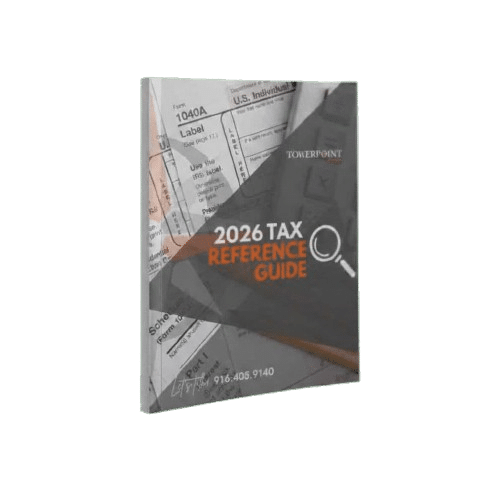Applying for Social Security retirement benefits at age 62 is a major decision with long‑lasting consequences. In this guide we explain how to apply for social security benefits at age 62, what trade‑offs you face, and how to optimize your income strategy. Whether you are nearing retirement age or already planning your next steps, our goal is to give you clarity on social security payments, retirement benefits, and the process of filing in 2025.
What Is Social Security and Why Does It Matter?
Social Security is the United States federal program that pays retirement benefits, disability benefits, and survivor benefits to millions of Americans. It is funded by payroll taxes and managed by the Social Security Administration. Your eligibility, monthly payments, and benefit amount all depend on your work history, social security credits, and decisions about when to begin receiving benefits.
For many retirees, social security benefits form a foundation of retirement income, supplementing personal savings, investments, pension income, and other sources. Because giving up potential benefit amounts early is irreversible, understanding how the country’s social security system functions is critical to retirement planning.
Are You Eligible to Apply for Social Security Benefits at Age 62?

Before you decide to file, you must confirm you qualify. Here are the key eligibility factors:
Work History and Social Security Credits
To qualify for retirement benefits from the social security system, you generally need at least 40 earned social security credits, which usually equates to 10 years of covered employment. Each year you work and pay Social Security taxes gives you up to 4 credits (depending on earnings).
If you are self employed, your self employment tax returns serve as proof of your earnings and help determine your credits. Your employer’s records also contribute to verifying your work history and earnings for the last year and previous years.
Citizenship, Legal Status, and Documentation
You must be a U.S. citizen or hold eligible citizenship status. Your citizenship status is validated through documents like a valid U.S. passport or permanent resident card. You will also need your social security number, an original birth certificate, or other proof of birth, and documentation related to any military service if applicable.
Other Factors like Spousal or Survivor Benefits
If a spouse or former spouse is eligible, you may qualify for spousal benefits or survivor benefits, but those depend on their earning record and your marital history. Unmarried children, or a spouse who is disabled, may also qualify for benefits under certain rules. Additionally, unmarried children attending secondary school or younger may qualify for benefits for a longer period.
Once you verify that you are eligible, you can begin planning how and when to collect.
The Trade‑Offs of Taking Retirement Benefits Early at Age 62

Choosing to begin receiving benefits at age 62 rather than waiting has permanent financial implications. Here are the most important factors to weigh.
Reduction from Full Retirement Age
If you collect benefits at age 62, your benefit amount is reduced compared to what you would receive at your full retirement age. The full retirement age varies by birth year, but for those born in 1960 or later it is 67. The earlier you begin, the greater the reduction. For some, the reduction may approach 30 percent of the full benefit.
This reduction is permanent. Even after you reach full retirement age, your monthly payments will not increase to the full level you could have received by waiting.
Earnings Limit While Receiving Benefits
If you decide to work while receiving benefits before full retirement age, you must follow the earnings limit rules. In 2025, if you are under full retirement age all year, you can earn up to $23,400 without a reduction in benefits. If your earnings exceed that threshold, Social Security will withhold $1 in benefits for every $2 you earn above the limit. In the year you reach full retirement age, a different limit applies and the rate is $1 withheld for every $3 earned above that limit. After full retirement age, there is no earnings limit.
Other Risks and Considerations
Because the reduction is permanent, you give up a portion of your long‑term income. If you live well beyond the breakeven point, waiting may deliver more cumulative payments. Health, life expectancy, and your ability to delay taking benefits should all influence your decision.
You must also consider tax implications — social security payments may be taxable depending on your income. And decisions you make now affect your benefit amount, spousal benefits, and survivor benefits later.
When and How to Apply for Social Security Benefits at Age 62

Once you choose to file, timing and method matter. Below we lay out the steps to apply, when to apply, and paperwork required.
When to File
You can file for social security benefits up to four months before the month in which you want payments to begin. Because payments come one month in arrears, if you want payments to begin the month after your 62nd birthday, you must file several months earlier. For example, if your 62nd birthday is in July and you want benefits to begin in August, submit your application no later than April, the previous month.
How to Apply
You have three main pathways to apply:
- Apply online: Using your verified social security account (the “my Social Security” portal), this is typically the fastest and most convenient method. Creating and verifying your social security account ahead of time is recommended.
- By phone: You can contact the Social Security Administration directly to file or schedule an appointment.
- At a local social security office: If you need identity verification or in‑person assistance, visiting a field office may be necessary.
As of March 2025, new requirements require many applicants to physically appear at a local social security office if they cannot verify identity online. This makes it all the more important to have your social security account verified ahead of time.
Documentation You Will Need
Gather these documents in advance to ensure smoother processing:
- Social security number
- Original birth certificate or other proof of birth
- Proof of citizenship or eligible legal residency
- W‑2 forms and self employment tax returns for recent years (to prove your earnings record, including last year)
- Records of military service (if applicable)
- Marriage and divorce records (for spousal or survivor benefit claims)
- Social security statement showing your earnings record and estimated benefits
- Any other proof needed to verify identity or address
- Information about your employer(s), including name and address
- Banking information for where benefits should be sent — this can be a bank or other financial institution
Submitting a complete application with all required documentation helps avoid delays and additional requests for information.
Recent Policy Changes Affecting Retirement Benefits in 2025
Because Social Security rules evolve, two changes in 2025 are especially relevant to those considering early filing.
Repeal of WEP and GPO
In 2025, Congress passed the Social Security Fairness Act, which repealed the Windfall Elimination Provision (WEP) and Government Pension Offset (GPO). WEP and GPO previously reduced social security benefits for people who also received public pensions or had non‑covered employment. With the repeal, these penalties no longer apply prospectively, and many affected individuals may see improved benefits.
New Identity Verification Rules
As of March 31, 2025, the Social Security Administration now requires some applicants to appear at a local social security office if they cannot verify identity online through their social security account. This affects people making changes to direct deposit or lacking sufficient digital identity proof. Because of this, you should verify your identity via the my Social Security portal before applying to avoid being forced into an in‑person visit.
Strategic Considerations: Is It Smart to Collect Benefits at Age 62?

Deciding when to begin collecting benefits is a deeply personal choice that depends on multiple financial and life factors. Here are key strategic concepts to guide your consideration.
Breakeven Analysis: When Waiting Pays Off
A breakeven analysis estimates when the total benefits from delaying surpass the total benefits from beginning early. For many retirees, the breakeven age falls between mid‑70s and early 80s. If you expect to live beyond that point, waiting closer to full retirement age or even until age 70 may yield greater cumulative income.
Health, Longevity, and Timing
If your health is uncertain or you expect a shorter lifespan, starting benefits at 62 may provide needed cash flow. Conversely, if you are in good health and anticipate a longer life, delaying taking benefits can maximize what you receive over a longer period.
Coordinating with Other Income Sources
Social security should be just one piece of your broader retirement income strategy. You’ll also have income from investments, IRAs, pensions, rental property, or business interests. You should coordinate the timing of applying for social security benefits with your withdrawal strategy so as to minimize taxes and maximize lifetime income.
Spousal and Survivor Considerations
Filing early can reduce not only your own benefit but also spousal and survivor benefits. If your spouse is younger or depends on your record, you should evaluate how early claiming affects their income. In many cases, optimizing spousal benefits means delaying your filing even if your own benefit would have been lower earlier.
Medicare Part B and Social Security
If you are applying for social security benefits at age 62, keep in mind that Medicare Part B enrollment typically begins at age 65. If you delay Social Security benefits past age 65, you may need to sign up separately for Medicare Part B to avoid penalties or gaps in coverage. Understanding the cost and enrollment timing for Medicare Part B is an important factor in your overall retirement planning.
Sample Scenario: An Example of Applying Early
Consider Jane, who is turning 62 in July 2025. She applies in April 2025 so benefits begin in August, the following month. Her full retirement age benefit, had she waited until 67, would have been $3,000 monthly. By applying early at 62, she receives $2,100 monthly. She expects to live into her mid‑80s, and her breakeven analysis shows she would have been better off waiting until 67. However, Jane also has a pension and investment income requirement she must meet. After modeling multiple scenarios, her advisor recommends waiting until 65 to tap social security, drawing down other assets in the meantime.
This type of modeling is part of what we do at Towerpoint Wealth when we advise on retirement planning and social security strategy.
Frequently Asked Questions
Can I Apply for Social Security Benefits Online at Age 62?
Yes, if you have a verified social security account, you can apply online via the my Social Security portal up to four months before you want benefits to begin.
How Much Will My Social Security Retirement Benefit Be Reduced If I Apply at 62?
The reduction depends on how many months before full retirement age you file. For many, the reduction is about 25‑30 percent compared to full retirement age benefits.
Can I Work and Collect Social Security Benefits at Age 62?
Yes, but if your earnings exceed the limit (for example, $23,400 in 2025), some benefits will be withheld until you reach full retirement age.
Do Spousal or Survivor Benefits Change If I Claim Early?
Yes, spousal and survivor benefits are reduced if claimed before full retirement age. Your early filing may also reduce what a surviving spouse can claim.
What if I Change My Mind After Applying?
You may be able to withdraw your application within 12 months of filing and repay all benefits you have received. This can only be done once in a lifetime.
Are Social Security Payments Taxable If I Claim Early?
Yes, up to 85 percent of your benefits may be taxable depending on your combined income from other sources.
Does Applying Early Affect Medicare Eligibility?
No. Medicare eligibility generally begins at age 65 regardless of when you begin social security retirement benefits. You may need to apply separately if you are not collecting social security by then.
Final Thoughts
How to apply for social security benefits at age 62 is only half the question. The more important question is, should you apply at 62? Because your decision is essentially permanent, it must be aligned with your health outlook, other income sources, tax implications, spousal considerations, and legacy goals.
Early claiming may make sense for certain individuals, especially those needing cash flow or with limited life expectancy. But many will benefit more from delaying, optimizing spousal benefits, and coordinating their retirement plan as a whole.
If you would like a custom analysis of your Social Security filing strategy, please reach out to schedule a consultation with one of our fiduciary advisors. We would be honored to help you align your future income and legacy goals with your unique circumstances.







